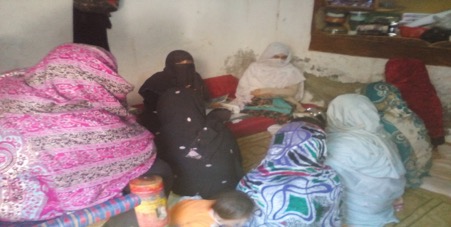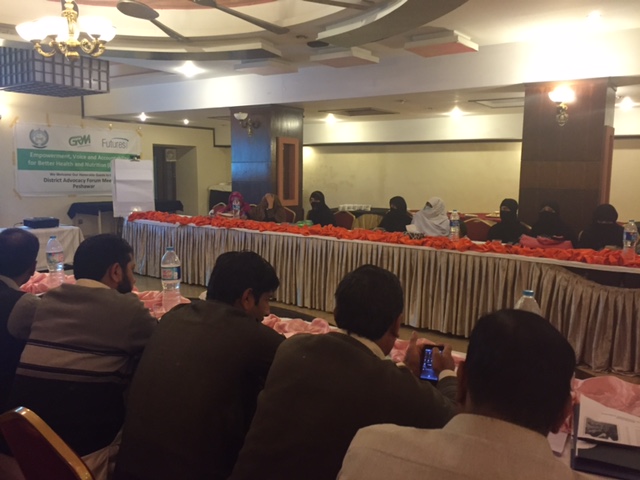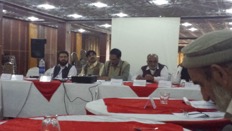Farooq Khan, Community Empowerment Manager, KP
“Right to Information because Life has a Purpose”, and, “let me Congratulate EVA BHN to be the first Non-Governmental forum where RTI Commissioner is addressing the communities regarding this useful law/act”, said by Professor Kaleem Ullah RTI Commissioner (KP) during a Check-In meeting at District Nowshehra on December 21, 2015.
EVA BHN is fortunate to be able to take advantage of Provincial RTI Commissioner Presence at District level. The Commissioner was very happy with the EVA BHN approach of engaging communities in an Empowerment journey where RTI is further synchronizing with it. He appreciated that EVA BHN has included the RTI orientation session in the community groups/mobilizers RTI Commissioner Presenting the act at Check-In Meeting Nowshehra
The Commissioner delivered a detail presentation in front of CG coordinators (male/female) from 21 Union Councils of District Nowshehra where each were representing a Community Group of their respective Union Councils. Among these CG Coordinators, a few were also on behalf of Local Government as well. The presentation covered the History of the RTI, the law/act in Pakistan and specifically in Khyber Pakhtunkhwa, the rollout of the act, the advantages of the service, and the response/feedback time allocated along with the complaint mechanism and related challenges in the execution. He further mentioned that Khyber Pakhtunkhwa is the first province in Pakistan who had passed this bill in 2013 and is active since (early) 2014.
The Commissioner mentioned/advised the participants to talk about this act/service at their respective union council and make the communities aware to be further empowered. In this regards, he distributed the RTI leaflets and broachers. He said, “If you don’t know your Rights & Entitlements, you can’t ask/fight for it”, and “having information and awareness is the actual Empowerment”. He shared some success stories from Khyber Pakhtunkhwa as well and was very happy that people of the province were utilizing this service.
The Community Group Coordinators were very happy with such a useful law/act, which is a service easily available at District Level. The CG Coordinator M Suhail Khattak (who is General Councilor as well) thanked the EVA while saying that, “this service is amazing and we all are thankful to you (EVA) for bringing the RTI commissioner at this forum which has further raised our motivation to work for our respective communities to be further Empowered”.


